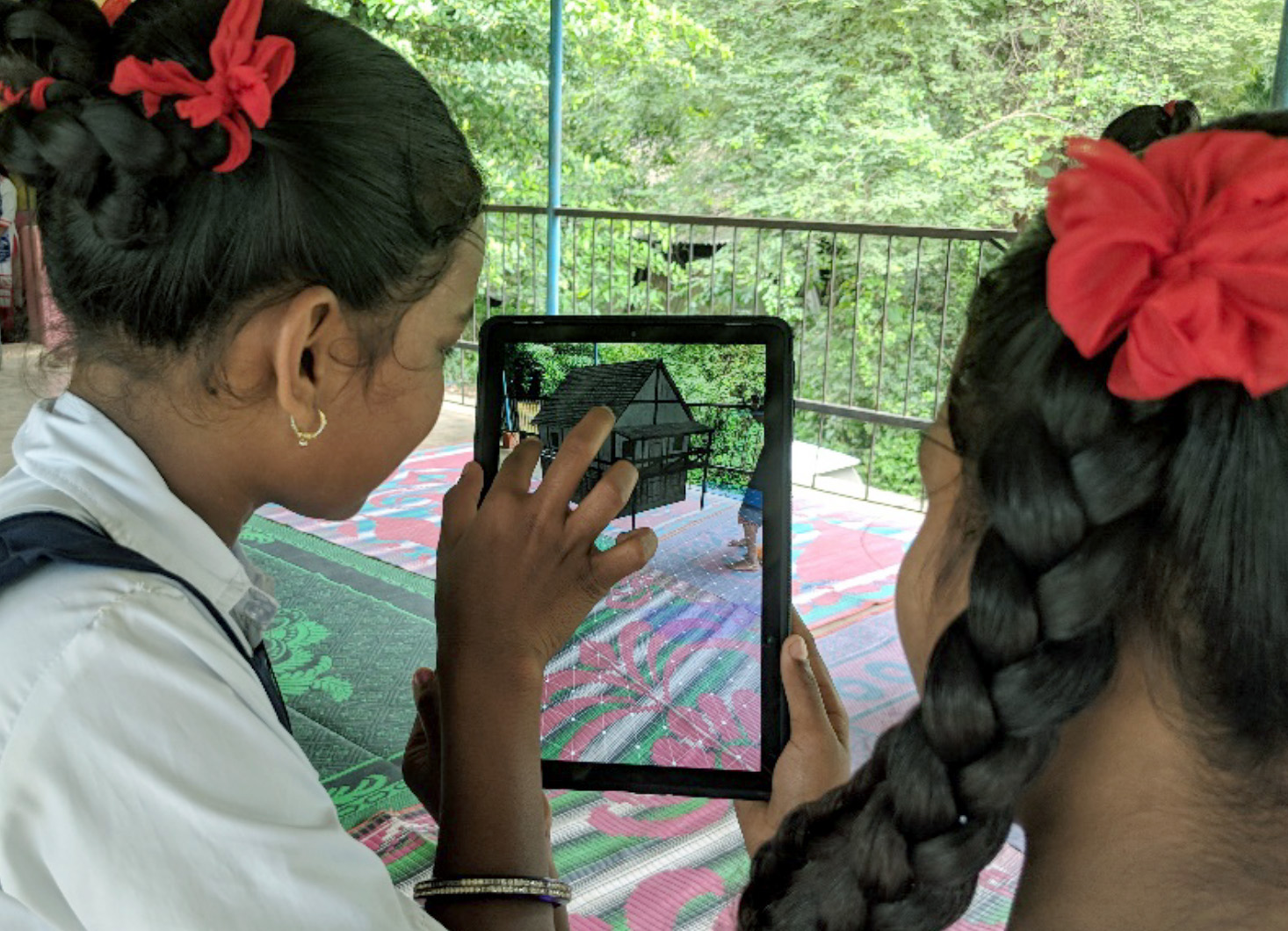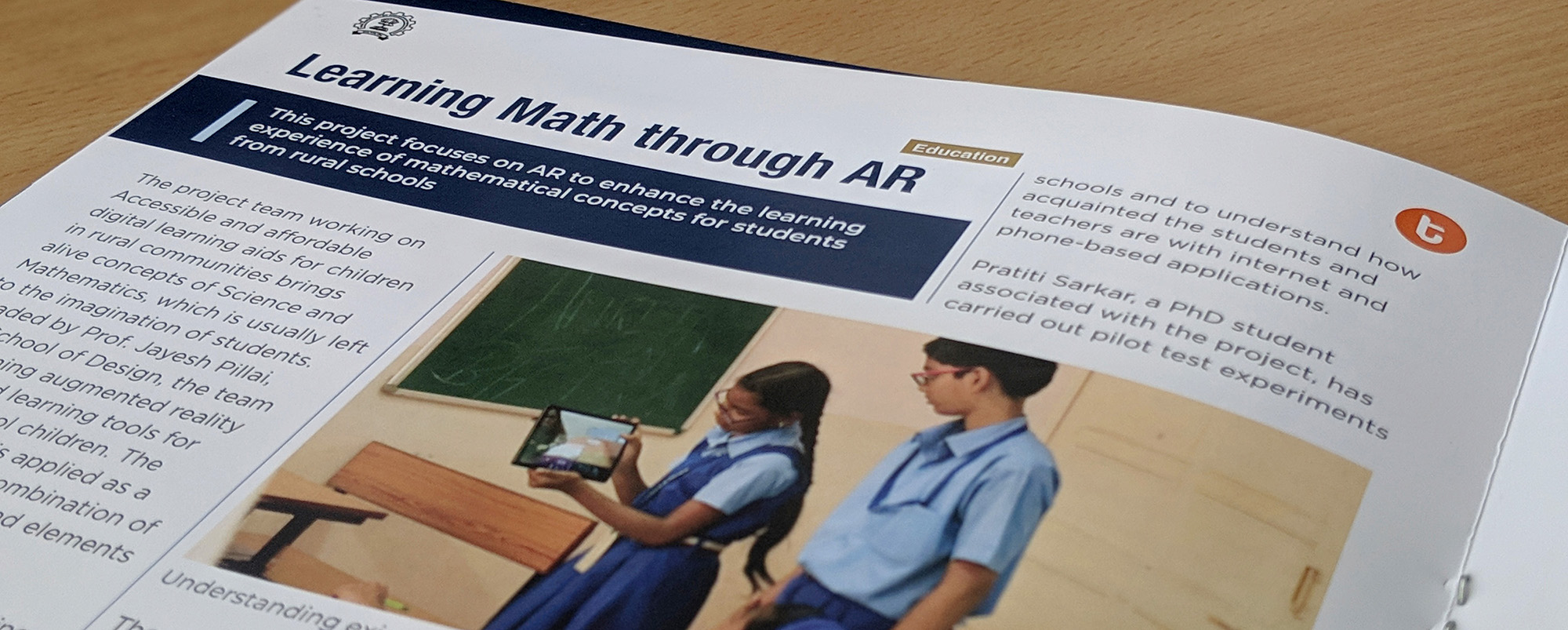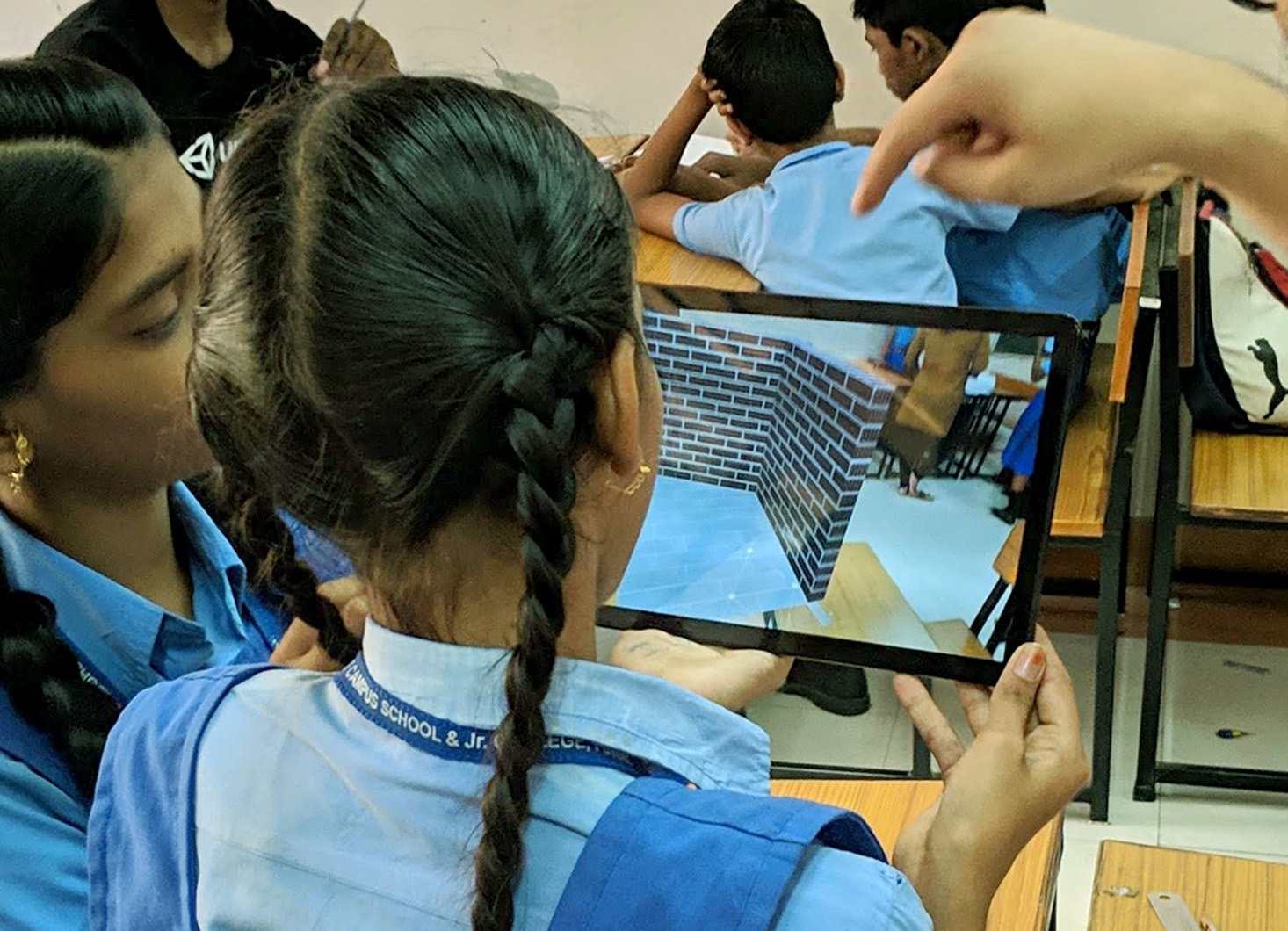ScholAR
Members : Pratiti Sarkar | Jayesh Pillai | Amarnath Murugan | Amal Dev | Rishi Vanukuru
Previous Members : Rajandeep Singh | Utsav Oza | Prabodh Sakhardande | Ankita Gupta
Acknowledgment : Dr. Kapil Kadam | Shraddha Dhodi | Suraj Kendre | Madhuri S. | Angela Simon | Jonathon Mathew
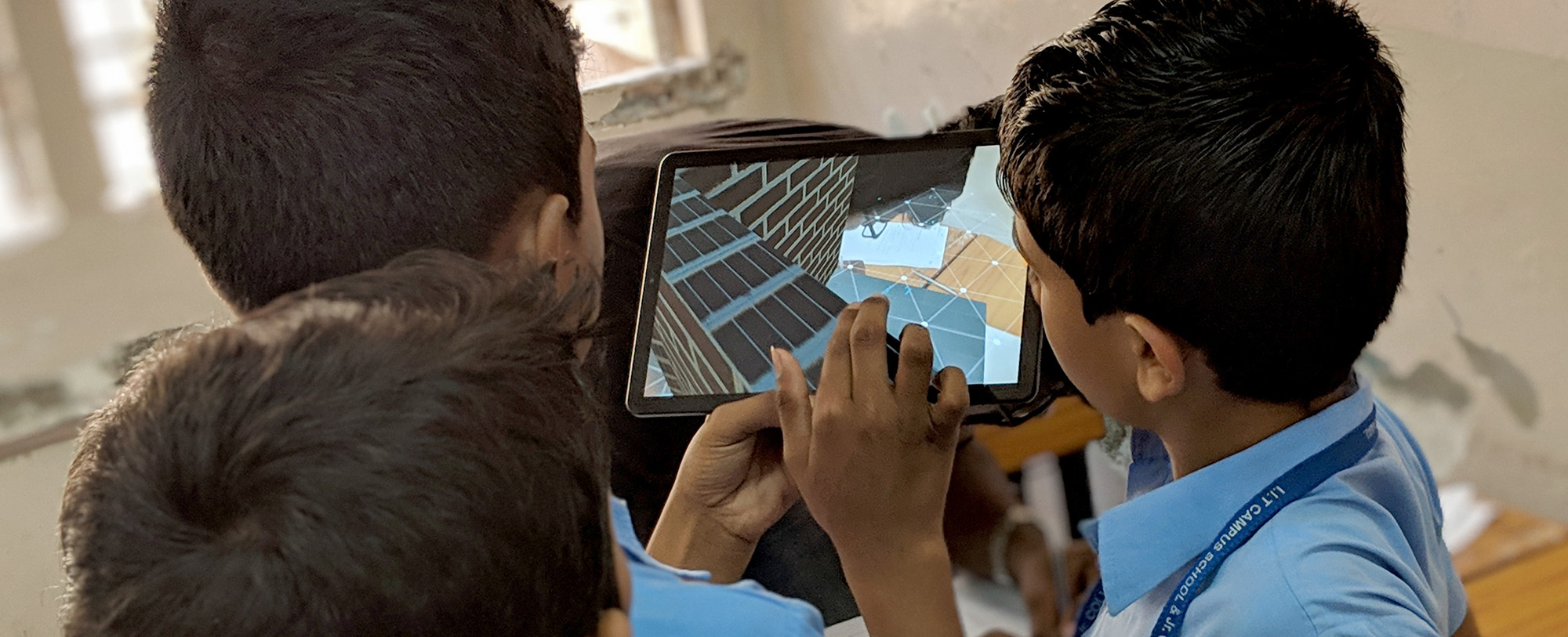
This project began as a doctoral research work in the year 2017, by Pratiti Sarkar. This project was currently funded by Tata Centre for Technology and Design, IIT Bombay, with Prof. Jayesh Pillai as the principle investigator.
See Pratiti’s PhD research journey here: pratitisarkar.github.io/research.
Abstract
In classroom teaching, across subjects, there are a lot of topics that are taught without pictorial representations in textbooks or with videos displayed using smartphones/tablets and/or smartboards. It is then expected from the students to imagine further the related concepts. Thus, the abstract concepts must be represented in manners to delve deeper understanding. In doing so, the students must have the ability to visualize and conceptualize spatially. Geometry is one such area that uses visuospatial thinking to play around with the concepts of 2D and 3D manipulations. In such a scenario, immersive technology if introduced in classrooms, can improve the learning skills of the students and keep them motivated. One such immersive technology is Augmented Reality (AR) which superimposes computer-generated virtual objects onto the real world in real-time. Over the years, various benefits of using this technology in educational environments have been reported, including the enhancement of spatial ability by providing experiential learning. Moreover, the ubiquity of mobile phones has led to increased integration of the use of AR and mobile learning. Thus, the broad objective of this project lies in improving the ability to visualize and conceptualize spatially. It is done for middle school students by designing a techno-pedagogical learning experience using mobile AR.

ScholAR’s module - Lines and Angles in AR
The AR activities are based on the topic of Lines and Angles from the CBSE board Mathematics syllabus of 7th grade. The module comprised of three different AR learning activities with multiple problems targeted towards recalling, visualizing, and then identifying the example of a type of angle. On identifying the required angle, one could mark it on an augmented 3D object (3D house in our study) by the draw-enabled feature of AR.
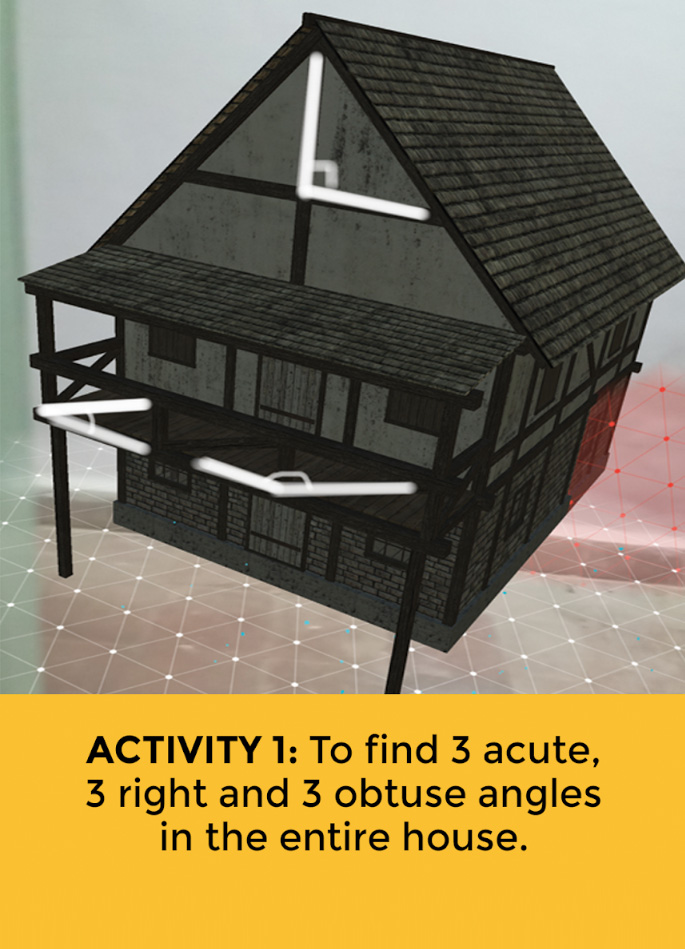
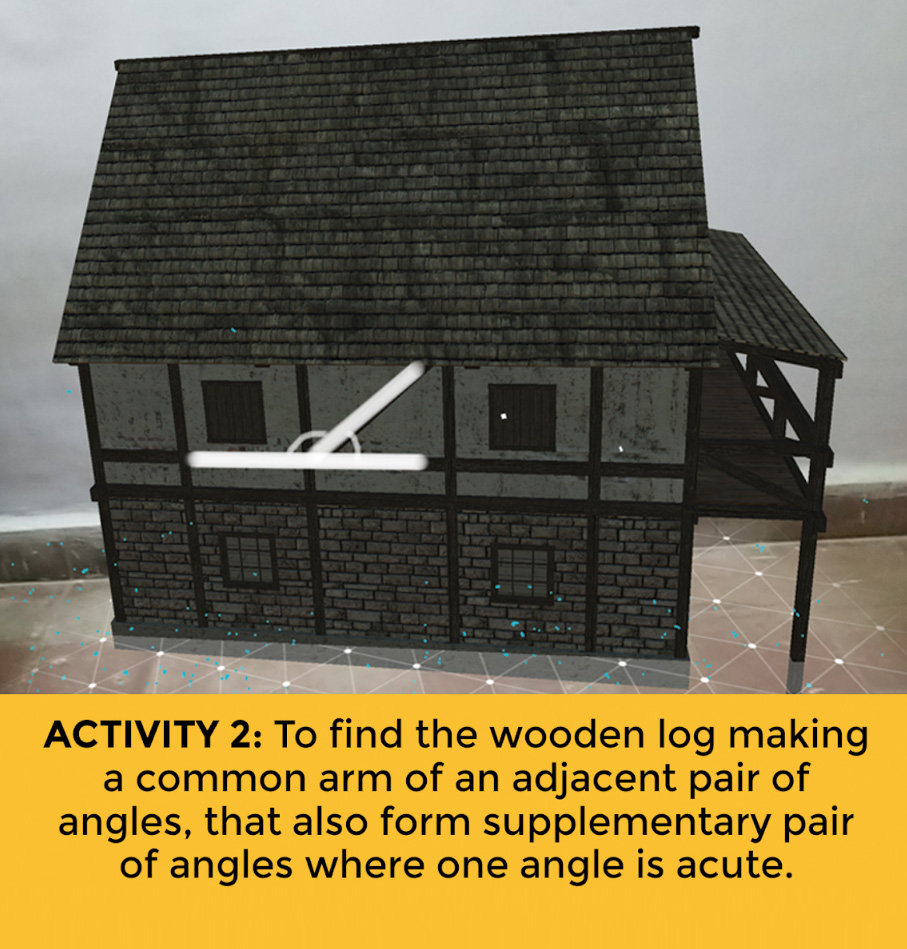
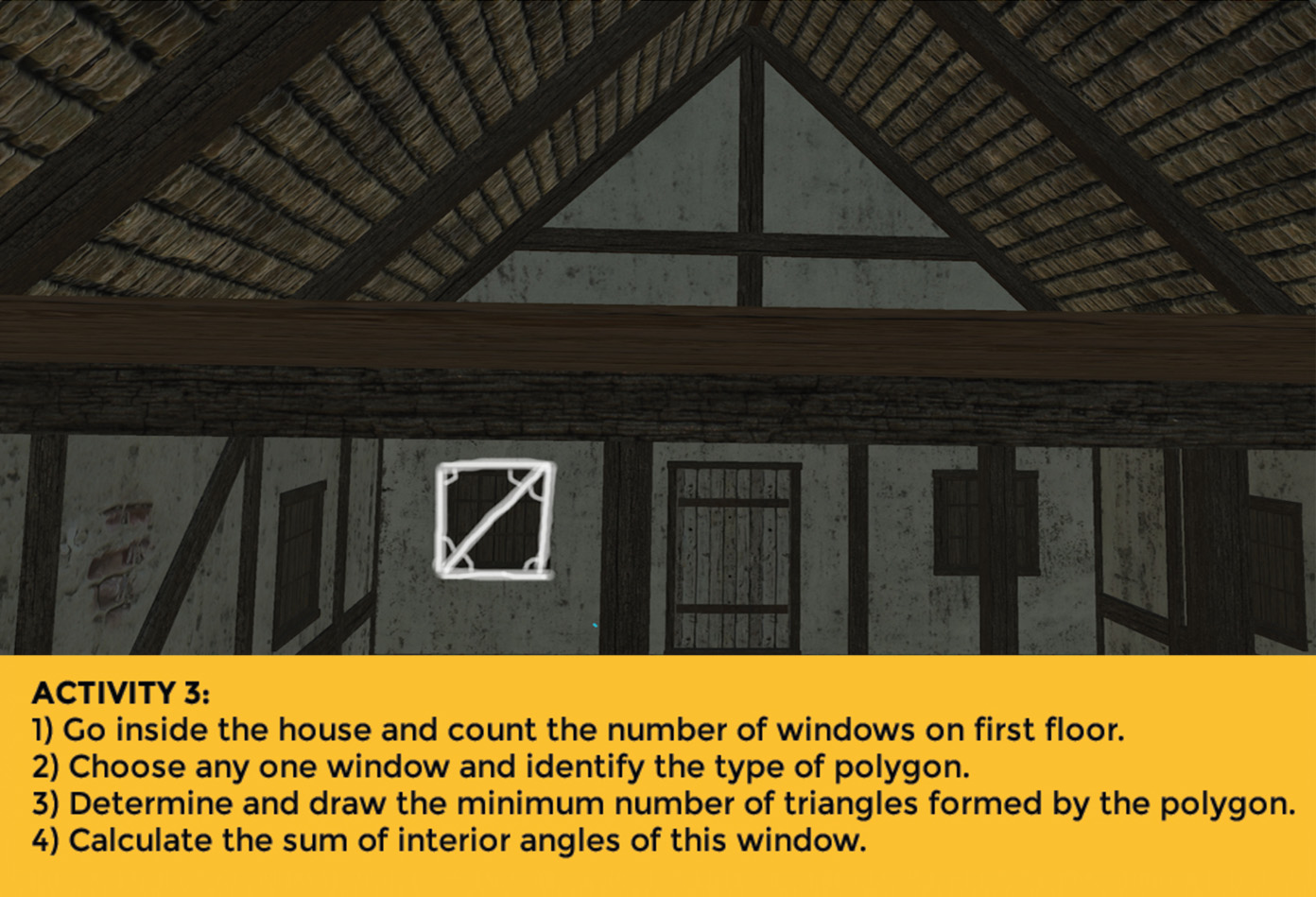
More details can be found in the journal paper and conference paper.
ScholAR’s module - Visualising Solid Shapes in AR (Version 1)
The AR activities are based on the topic of Visualising Solid Shapes from the CBSE board Mathematics syllabus of 7th grade. They were further designed and developed based upon two subtopics - (1) types of 3D shapes, and (2) vertices, edges and faces of 3D solids. Each of the subtopics had three activities where the first activity was an exploratory activity, the second activity was based on the applying the understanding of the explored content, and the third activity was testing the applied skills learned.


ScholAR’s module - Visualising Solid Shapes (Version 2)
On testing the earlier version with the teachers and students, we are working on the second iteration of the design and development to improve the AR learning experience for the topic of Visualising Solid Shapes. The subtopics that are taken into consideration involve - (1) vertices, edges, and faces, (2) Nets, and (3) Front, side, and top views 3D solids.
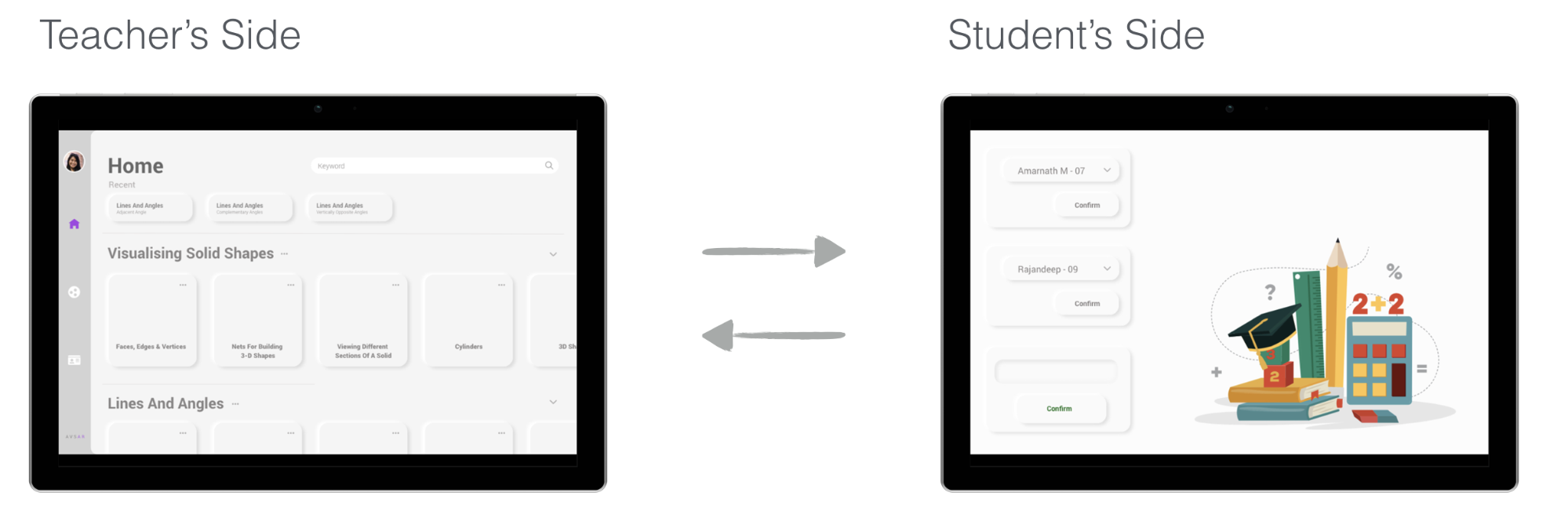
Further details of the work will be posted soon.
Outcomes
Our work has generated interest in the annual TATA conference held at IITB every year. Here are some of our project members presenting posters on ScholAR.
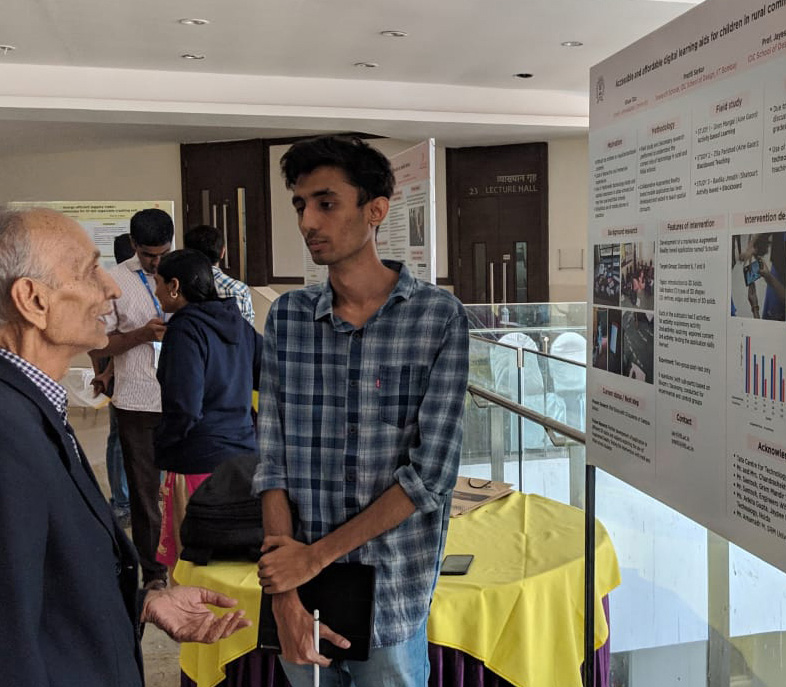
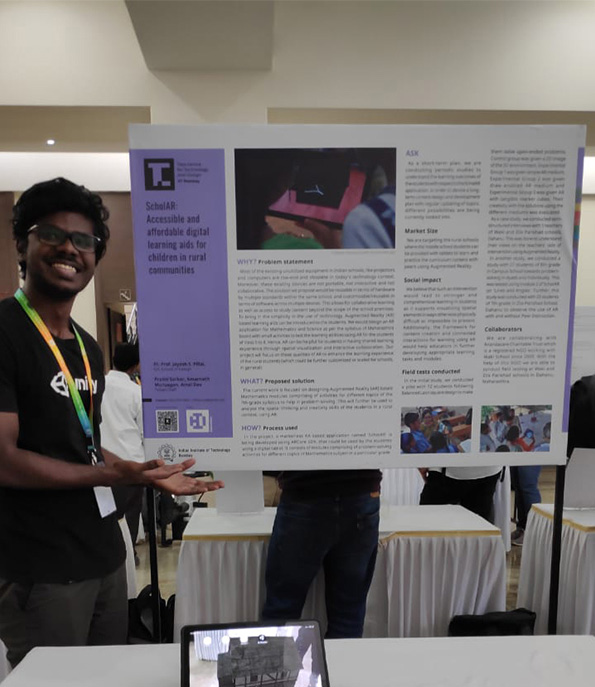
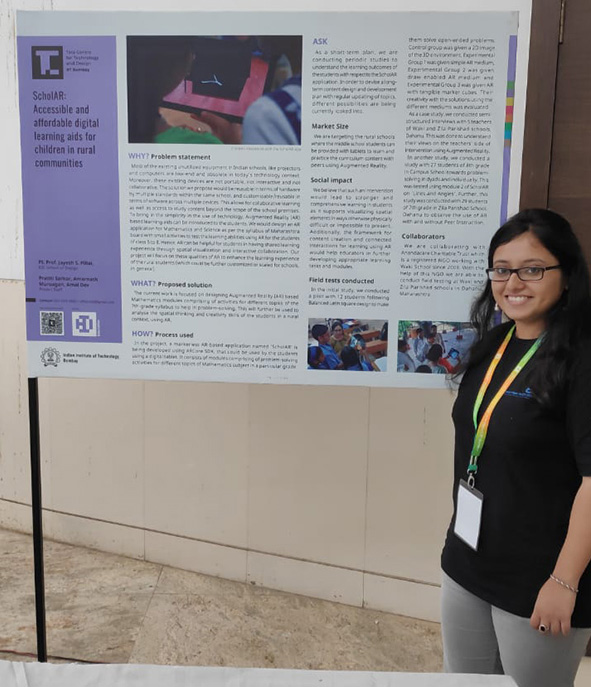
Publications
-
Sarkar P., Murugan A. and Pillai J.S. (2020). Towards Designing a Mobile Augmented Reality Learning Experience, in: 19th IEEE International Symposium on Mixed and Augmented Reality (ISMAR 2020), Porto de Galinhas, Brazil.
-
Sarkar P., Kadam K. and Pillai J.S. (2020). Learners’ approaches, motivation and patterns of problem-solving on lines and angles in geometry using augmented reality, in: Smart Learning Environments, SpringerOpen.
-
Sarkar P., Kadam K. and Pillai J.S. (2019). Collaborative Approaches to Problem-Solving on Lines and Angles Using Augmented Reality, in: Technology for Education (T4E 2019), Goa, India.
-
Sarkar P., Sakhardande P., Oza U. and Pillai, J.S. (2019). Study of Augmented Reality Interaction Mediums towards Collaboratively Solving Open-Ended Problems, in: 27th International Conference on Computers in Education (ICCE2019), Dec2019, Kenting, Taiwan.
-
Sarkar P. and Pillai J.S. (2019). User Expectations of Augmented Reality Experience in Indian School Education, in: International Conference on Research into Design (ICoRD) 2019, IISc Bangalore, India.
-
Sarkar P., Pillai J.S. and Gupta A., (2018). ScholAR: A Collaborative Learning Experience for Rural Schools Using Augmented Reality Application, in: Technology for Education (T4E 2018), IIT Madras, India.
